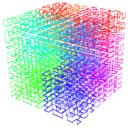Yahoo Answers is shutting down on May 4th, 2021 (Eastern Time) and beginning April 20th, 2021 (Eastern Time) the Yahoo Answers website will be in read-only mode. There will be no changes to other Yahoo properties or services, or your Yahoo account. You can find more information about the Yahoo Answers shutdown and how to download your data on this help page.
Trending News
Metric space question?
If a_n is a sequence greater than 0, and the sum of a_n converges, then the sum (n=1 to infinity) of sqrt(a_n)/n converges.
I had a similar problem to this one a few days ago. If we can show that both sqrt(a_n) and 1/n are both in L^2 (L^2 is the typical definition, defined as {s_n}(n=1 to infinity) : sum (n=1 to infinity) s_n^2 < infinity)
Since we know that a_n converges, and that it is obviously sqrt(a_n)^2, so sqrt(a_n) is in L^2., and (1/n)^2 = 1/n^2, and we know that that sums to pi^2/6, so 1/n is also in L^2. So, by Schwarz inequality, the product of them is absolutely convergent, and thus convergent as well.
1 Answer
- SuleimanLv 610 years agoFavorite Answer
a(n) is in ℓ¹ iff √(a(n)) is in ℓ².
And as you stated, 1/n is in ℓ².
So by the Schwarz inequality we have ||√(a(n))/n||₁ ≤ ||√(a(n))||₂||1/n||₂.
→ √(a(n))/n is in ℓ¹.


